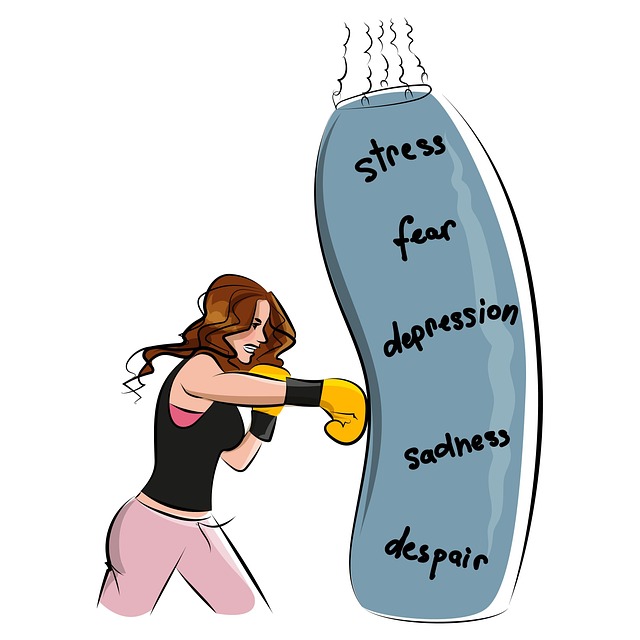Mental wellness is more than just absence of illness, it's a holistic state including emotional, psychological, and social well-being. The Parker Chronic Pain Therapy approach treats chronic pain conditions by addressing both physical and psychological aspects, using techniques like cognitive behavioral therapy (CBT), mindfulness, and relaxation to challenge negative thought patterns, improve mood, and reduce stress. Effective coaching programs integrate Emotional Healing Processes, Crisis Intervention Guidance, tailored cognitive reframing, behavioral activation, compassion cultivation, and communication strategies to build resilience, adopt healthy coping mechanisms, and achieve well-being despite chronic pain. Regular evaluation, community engagement through podcast series, and continuous learning based on participant feedback are key to successful mental wellness coaching.
Mental wellness coaching programs are gaining prominence as effective tools for improving overall well-being. This article explores the development of such programs, focusing on understanding mental wellness and chronic pain as a foundational element, drawing insights from the renowned Parker Chronic Pain Therapy Approach. We delve into key strategies for designing coaching sessions that support mental wellness, and conclude with best practices for implementation and evaluation to ensure successful program outcomes. Discover how these elements synergize to create impactful mental wellness coaching experiences.
- Understanding Mental Wellness and Chronic Pain: A Foundation for Coaching Programs
- The Parker Chronic Pain Therapy Approach: Principles and Techniques
- Designing Effective Coaching Sessions: Strategies for Mental Wellness Support
- Implementation and Evaluation: Ensuring Success in Coaching Programs Development
Understanding Mental Wellness and Chronic Pain: A Foundation for Coaching Programs

Understanding mental wellness involves recognizing that it’s not merely the absence of mental illness but a state of emotional, psychological, and social well-being. This encompasses not just managing acute stress or anxiety, but also addressing chronic pain conditions that significantly impact daily life. Chronic pain, often managed through Parker Chronic Pain Therapy, is more than just physical discomfort; it’s deeply intertwined with one’s emotional state.
This intricate relationship forms the foundation for developing effective mental wellness coaching programs. By integrating Emotional Healing Processes and Crisis Intervention Guidance, coaches can help individuals not only cope with the physical symptoms of chronic pain but also navigate its psychological effects. Such programs aim to empower individuals to develop resilience, adapt healthy coping mechanisms, and ultimately achieve a deeper sense of well-being despite the challenges presented by chronic pain.
The Parker Chronic Pain Therapy Approach: Principles and Techniques

The Parker Chronic Pain Therapy Approach is a comprehensive framework designed to address chronic pain conditions holistically, focusing on both physical and psychological aspects. This method emphasizes the importance of understanding the individual’s unique experience with pain, taking into account their personal history, beliefs, and coping mechanisms. By acknowledging the complex interplay between chronic pain and mental health, this approach aims to provide tailored support.
The principles involve fostering a safe and non-judgmental environment to encourage clients to explore their emotions related to pain. Techniques such as cognitive behavioral therapy (CBT) are employed to assist individuals in challenging negative thought patterns associated with their condition. Additionally, the program incorporates mindfulness practices and relaxation strategies to improve mood management and reduce stress levels, which can significantly impact chronic pain perception. These trauma support services aim to empower clients to take control of their well-being and foster a sense of resilience in navigating their mental health awareness journey.
Designing Effective Coaching Sessions: Strategies for Mental Wellness Support

Designing effective coaching sessions for mental wellness support involves incorporating evidence-based strategies that cater to the unique needs of individuals seeking assistance. One key approach is integrating elements from Parker Chronic Pain Therapy, focusing on cognitive reframing and behavioral activation techniques. By teaching clients to identify and challenge negative thought patterns, coaches can empower them to cultivate positive thinking—a cornerstone for managing stress and improving overall well-being.
Additionally, incorporating compassion cultivation practices and effective communication strategies enhances the coaching experience. These practices foster a safe and supportive environment where individuals feel heard and understood, encouraging them to explore their emotions openly. Open dialogue and active listening facilitate the development of adaptive coping mechanisms, thereby strengthening clients’ resilience in navigating life’s challenges.
Implementation and Evaluation: Ensuring Success in Coaching Programs Development

Implementing a mental wellness coaching program requires a structured approach to ensure its success and effectiveness. At the forefront of this process is the integration of evidence-based practices, such as those employed in Parker Chronic Pain Therapy, which have proven beneficial for managing mental health challenges. This involves carefully designing coaching curricula that align with recognized therapeutic models, ensuring they cater to diverse client needs.
Evaluation is a critical component of program development. Regular assessments and feedback mechanisms enable coaches and developers to gauge the impact of the initiative. By analyzing participant progress, satisfaction levels, and outcome measures, it becomes possible to refine and improve the coaching program over time. This iterative process mirrors the Public Awareness Campaigns Development approach, where continuous learning ensures the campaign’s relevance and effectiveness in raising mental health awareness. Additionally, leveraging Mental Wellness Podcast Series Production techniques can provide a platform for sharing insights, best practices, and success stories, fostering community engagement and further promoting mental wellness.
Mental wellness coaching programs, grounded in evidence-based practices like the Parker Chronic Pain Therapy Approach, have immense potential to improve lives. By understanding the intricate link between mental wellness and chronic pain, and employing strategies from this approach, coaches can design effective sessions that support clients on their journey towards resilience and well-being. Implementation and evaluation are crucial steps to ensure these programs deliver tangible results, fostering a healthier and more supportive society.










